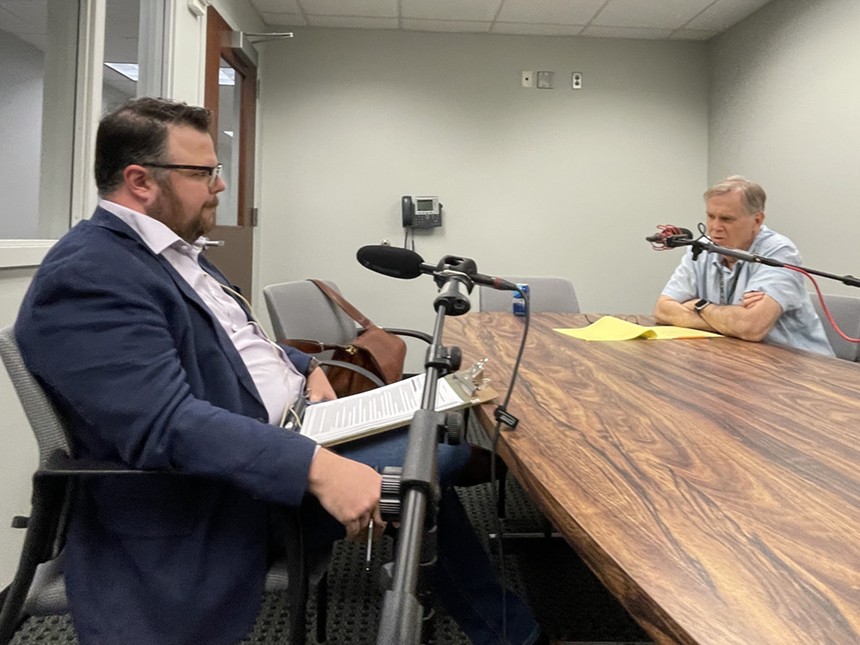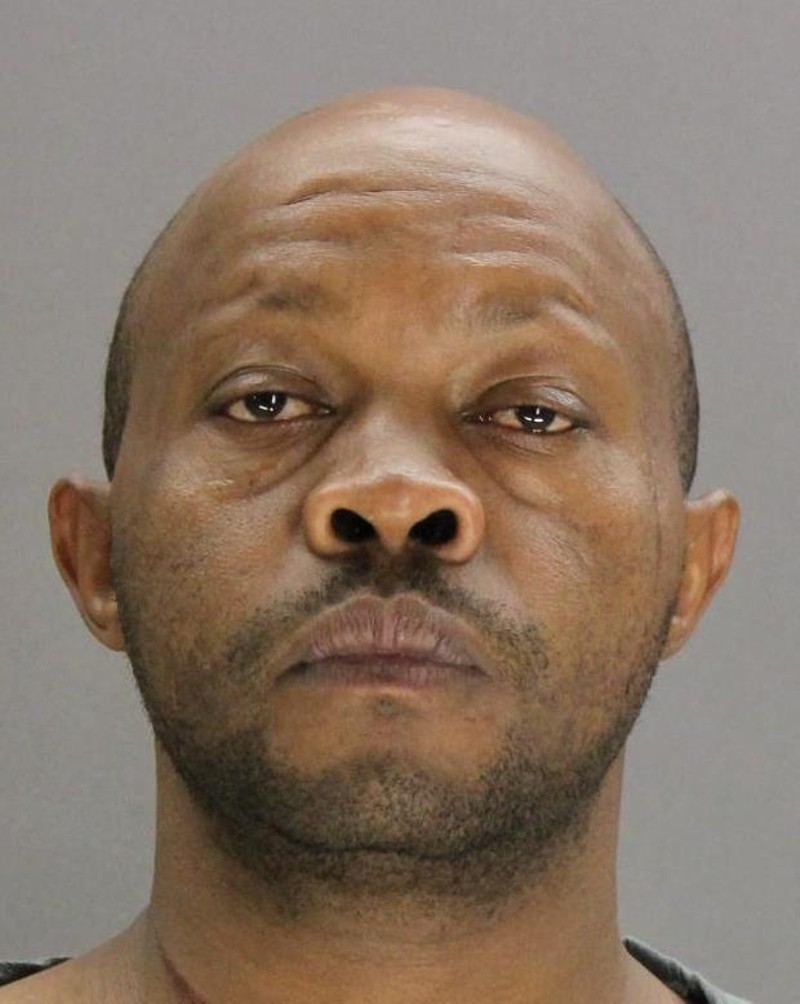Chemirmir’s story regularly made its way to the top of local headlines following his 2018 arrest, 2019 indictment, 2021 trial and after his death last year. Chemirmir worked as an in-home caregiver and often posed as a maintenance worker to gain access into high-end living communities for the elderly. Authorities say Chemirmir would smother his victims to death with a pillow and steal possibly millions of dollars worth jewelry and other valuables in order to sell them.
In both trials that ended in conviction, Chemirmir pleaded not guilty, a stance he maintained throughout his arrest, trials and afterwards. Now, a new podcast from a local journalist who has covered the case for years aims to reveal new details involving one of the state’s most notorious suspected serial killers.
Charles Scudder, host of The Unforgotten: Unnatural Causes, started covering the Chemirmir murders in 2019 when he was a breaking news reporter for The Dallas Morning News. He went on to write a two-part series about the murders entitled “Guardians” that won the national Edward R. Murrow award for excellence in writing for large digital news organizations.
As excellent as his award-winning pieces on the Chemirmir murders were, that was a long time ago — long before the overall story took several twists and turns.
“I should say that the vast majority [of the podcast interviews] are new interviews, or people I reinterviewed,” Scudder explains. “If you followed my reporting at the Morning News, first of all, thank you, but this is going to be much more than that. You’re going to learn things from this.”
The premiere episode of Unnatural Causes, available on Oct. 14, opens with harrowing audio from a 911 call before switching to audio from court testimony. The woman at the center of the audio, Mary Bartel, was one of Chemirmir’s victims, although she, perhaps miraculously, survived.
Bartel’s is one of many notable voices featured in Scudder’s podcast. Family members of some of the victims, attorneys involved in some of the individual cases, forensic pathologists, state lawmakers and senior living industry experts are just some of the people who weigh in on this story, which is far from a simple true crime tale.
Perhaps most chilling is the inclusion of Chemirmir’s voice in the podcast. Scudder says he was the only journalist to whom the murderer spoke after his arrest. Scudder recently wrote about some of his conversations with Chemirmir over the years in which the murderer repeatedly denied any wrongdoing even when Scudder presented him with the mountain of evidence against him.
Understandably, Scudder, who has also written about Chemirmir for The Guardian since leaving the Morning News to become a freelance journalist and SMU journalism professor, has picked up on a number of threads that connect the two-dozen-plus murders and attacks carried out by Chemirmir. He says that when inspected as a whole, the case shows some serious cracks that Chemirmir was able to slip through undetected. Those cracks will be inspected over the podcast’s nine episodes, but a specific one is introduced in Episode 1.
“The method Chemirmir used is a big crack,” Scudder says. “Smothering deaths don’t leave the same signs as a strangulation, where there’s bruising, hand marks, a broken trachea and that kind of thing. When someone gets stabbed, there’s a knife wound. Someone gets shot, there’s a bullet wound, right? Smothering deaths don't do that; they leave very few traces.”
Some of the other “cracks” that enabled Chemirmir to possibly kill dozens, Scudder says, include the loopholes in the in-home caregiving industry and the lack of regulation in the cash-for-gold industry, which operates differently from pawn shops, which are regulated.

Host Charles Scudder (left) conducts an interview for his new podcast on Billy Chemirmir's murders.
Monika Watkins
“It was a system of systems that worked together that he was able to find holes in all over the place,” Scudder says.
Another thread that Scudder will pull on in the podcast is the disconnect between society’s general perception of the elderly and the reality of just how vibrant Chemirmir’s victims were, regardless of their advanced age.
“It’s easy to fall into the trap of ‘Oh, they were frail old women on death’s door,’ but this wasn’t the case,” he says. These women were active and healthy, with many of them driving themselves on errands or to church… They were out running and gunning and actively living. We aren't talking about frail seniors, we’re talking about older adults who were in a new chapter of life.”
As he notes in the first episode, Scudder spent countless hours poring over thousands of pages of court transcripts, police reports, autopsy reports and other documents. The problem he mentioned earlier about how a suffocation murder can look all too natural adds a level of complexity that might be too difficult for investigators to ever navigate. As thorough as Scudder’s reporting on this case has long been, he admits that even now, at least 8 years after Chemirmir is first believed to have killed, some questions about this horrific case will never be answered.
“One of the things we talk about on the podcast is that we don’t really know how many [victims] there, are and we never will,” he says. “It’s impossible for us to know the real number because of how the cases were treated early on by police … We just don’t know.”













